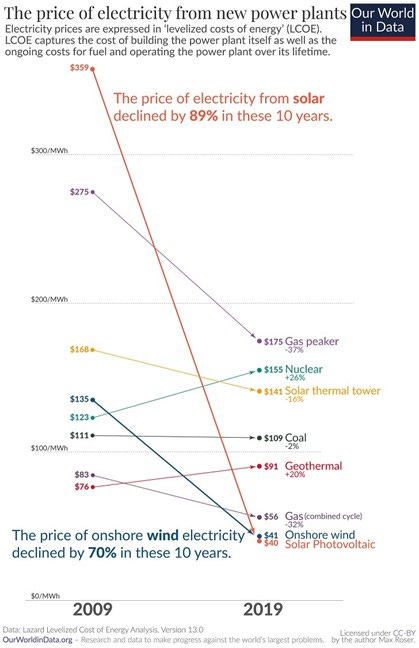Wednesday Links
Euthanasia, Energy, Tariffs, and More
1. We write a lot about labor shortages and how employers are desperate for workers. Maybe they aren’t desperate enough, because companies like McDonalds, FedEx, and Olive Garden make applicants take a 50 question personality quiz from an AI company that is administered by a blue, humanoid alien named Ash. Ash ranks candidates “in terms of ‘agreeableness’ and ‘emotional stability.’”
As this guy on Reddit lamented, “Man I just want a dishwasher job.”
2. Think you’re having a bad day at work? It could be worse. Lyft sent out a press release projecting a 500 basis point increase in their margins, only to issue a correction an hour later that they’re actually expecting a 50 basis point expansion. Share prices spiked 67% during after hours trading but gave up most of those gains after the correction. You have to feel for the employees (who now might be former employees) responsible for this catastrophic typo.
3. This study found that defendants with an “untrustworthy face” were found guilty more often and given longer sentences. Lookism remains an underrated form of prejudice.
4. Former Dutch Prime Minister Dries van Agt and his wife die ‘hand in hand’ by euthanasia at age 93. This is just the highest profile example of the growing but contentious Right to Die movement.
Canada’s Medical Assistance in Dying (MAID) program, for instance, accounted for 4.1% of all deaths in Canada in 2022. The average age of those who received MAID was 77, and about two thirds of recipients had cancer. Of the 13,241 MAID provisions, “463 were individuals whose natural deaths were not reasonably foreseeable.” Some think that Canada’s program is a bit excessive.
5. Some achievements are buried because the responsible political party doesn’t want to take credit and the other doesn’t want to give it. Trump’s wildly successful Operation Warp Speed comes to mind. So does the record U.S. oil production recorded under Biden.
Similarly, Canada has now joined the North American oil production boom: “Put all the extra US and Canadian oil together, and the two North American allies will pump one-in-four barrels worldwide in 2024. Let me emphasize this: A quarter of the world’s oil will come from Canada and the US this year.”
6. You might have seen it reported that Mexico overtook China as the top exporter to the U.S. in 2023. According to U.S. import data, that’s true. According to Chinese export data, it’s not. What gives? It looks like U.S. firms are hiding tariffed imports for obvious financial reasons. Related: Trump Floats Chinese Goods Tariff Exceeding 60% If Elected.
7. Speaking of Chinese imports, the U.S. has a solar manufacturing problem. China controls around 80% of the solar-cell market and makes more than 97% of the worlds solar ingots and wafers. The U.S. controls 0% and makes no solar ingots or wafers.
Why does this mater? Because the price of electricity generated by solar has fallen 89% over the past decade and there are a lot of reasons to be excited about that. Also, you know, 60% tariffs…
8. Speaking of electricity, a 3,400 kiloton reserve of lithium was just found in California’s Salton Sea. That’s about seven billion pounds. This will increase U.S. energy independence in like 20-30 years when (or maybe if) we make it through a lengthy and litigious environmental review process.
9. Montana Governor Greg Gianforte started a Red Tape Relief Initiative in 2021. It’s led to the repeal or amending of 1,861 regulations so far, or nearly one-fifth of all statewide regulations. Successes (in my opinion) range from marijuana legalization to allowing physicians assistants to practice alone and pharmacists to prescribe routine medications. This Twitter thread from Kendall Cotton has a good run down on it.
Remarkably, South Dakota and Idaho have been even better than Montana at deregulating in recent years.
10. In 1968, Paul Ehrlich wrote a book called The Population Bomb. It’s among the worst books ever written. Why? Because it predicted, with much fanfare and to much acclaim, that humanity was on an inevitable path to overpopulation and that hundreds of millions would die of famine during the 1970s and 1980s. Among other potential solutions, he floated the idea of mass sterilization.
Instead of worldwide famine and widespread starvation, we’re now faced with soaring obesity and plunging fertility rates. But at least Paul Ehrlich was repentant about his horrible book and faced severe professional consequences, right?
No, of course not. He’s doubled down on the Population Bomb, is the president of the Center for Conservation Biology at Stanford University, and seems to have faced virtually no consequences at all.
Why do I bring this up now? Because this letter recently ran in the Wall Street Journal.
Looking Ahead
We’ll have Week in Review, covering Tuesday’s troubling inflation data, out on Friday for our paying subscribers. If that’s not you and you want it to be, just click the button below.






